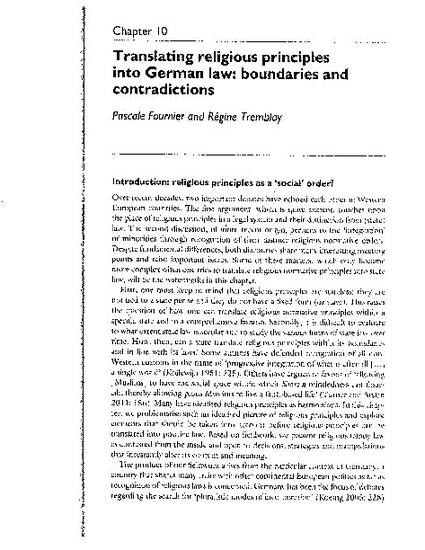
- Family Law,
- Religious Principles,
- Comparative Law
First we present the basic rules of Islamic and Jewish law and the German state law that regulates them. Next we contend that the boundaries for shaping and applying religious norms are blurry. We argue that the conflicting outcomes might be explained by boundless discretion and informality in the religious adjudication process, but that this structure is not foreign to so-called secular family law. Thus, if the project of recognizing religious principles when it comes to family law is to be maintained, it must take stock of the conceptual and practical conflicts that inhere to the sphere of family law, and to law more generally. These arguments are intended as a contribution to the burgeoning literature on the interaction between secular State law and ‘unofficial’ religious norms.
